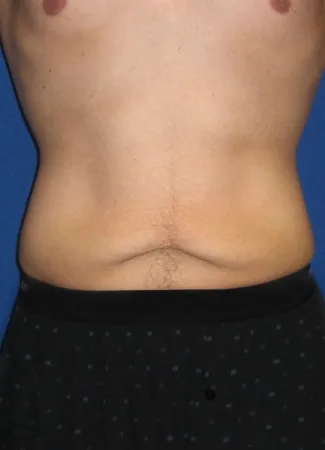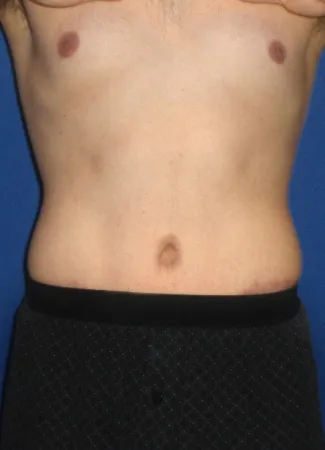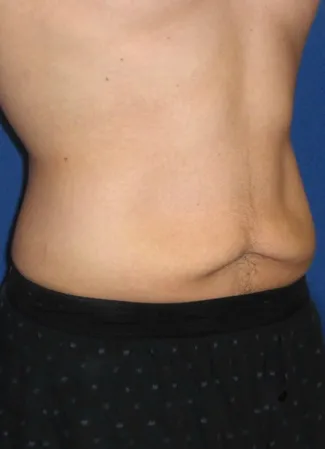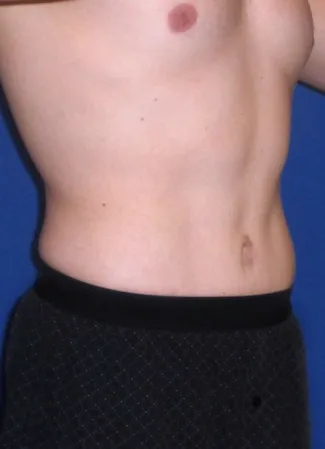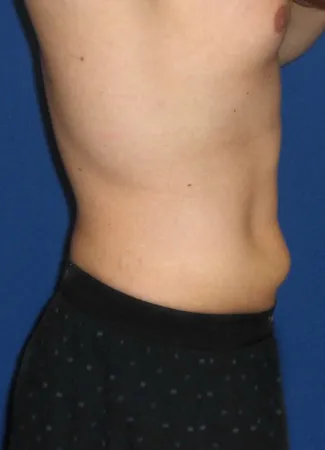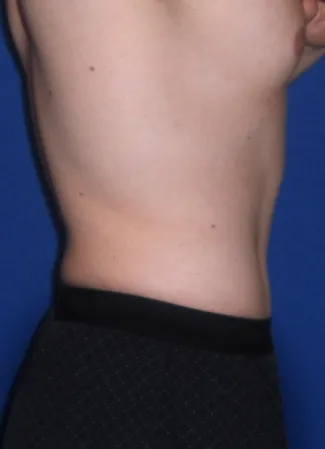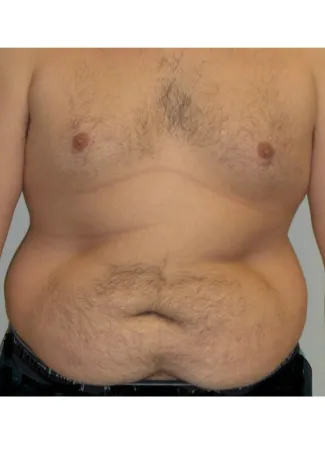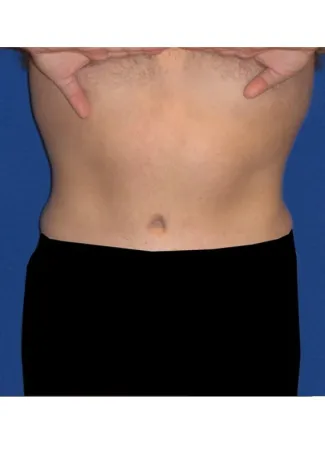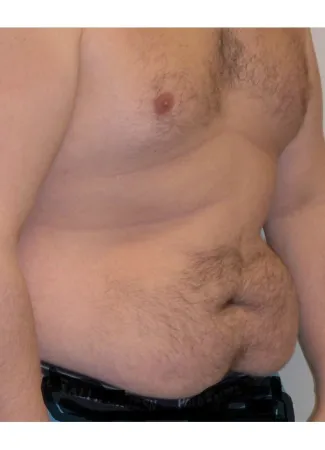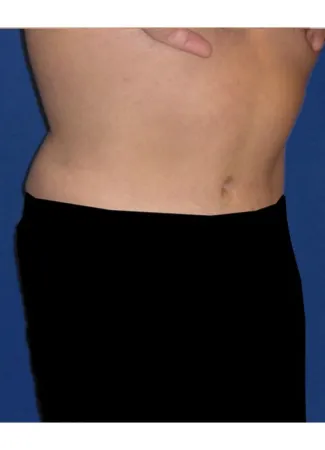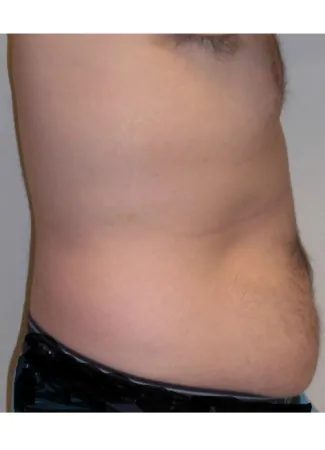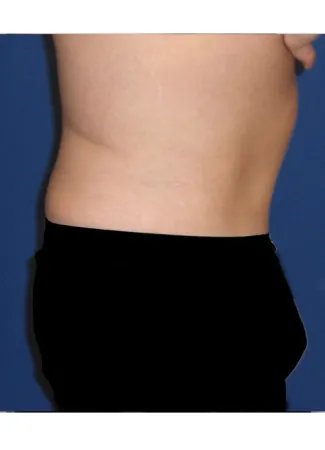Tummy Tuck (Abdominoplasty)
If you have loose abdominal skin, extra fatty tissue over your abdomen, or loose abdominal muscles, you might benefit from an abdominoplasty. Maybe you’ve had weight loss, or maybe your abdominal skin has just loosened with time and age.
A tummy tuck gets rid of loose skin on the abdomen, tightens loose abdominal muscles, and removes extra fat from the abdomen, hips, and waist.
Our goal is to provide you with the “ultimate patient experience”. Our well-trained staff will help you understand your procedure, our financial policies, the scheduling of your surgery, and your postoperative care. Dr. Kavali is also available 24 hours a day for emergencies, and she will give you her cell phone number after surgery so that you will always be able to reach her with any questions you might have.
See the Possibilities
Before & After
- Male Abdominoplasty
Things You Need to Know
Have Questions?
-
Is a Tummy Tuck (Abdominoplasty) Right for Me?
Is a Tummy Tuck (Abdominoplasty) Right for Me?
If you have loose abdominal skin, extra fatty tissue over your abdomen, or loose abdominal muscles, you might benefit from an abdominoplasty. Maybe you’ve had prior pregnancy or weight loss, or maybe your abdominal skin has just loosened with time and age. A tummy tuck gets rid of loose skin on the abdomen, tightens loose abdominal muscles, and removes extra fat from the abdomen, hips, and waist. -
What Can I Expect During My Consultation?
What Can I Expect During My Consultation?
After you arrive at our office, you’ll first meet with one of Dr. Kavali’s Physician Assistants. They will begin the consultation process by reviewing your medical history, establishing your goals for the surgery, and by taking relevant photographs for your medical record. Dr. Kavali will complete the consultation process by meeting with you to personally hear about your goals for surgery and for a physical exam. This conversation will help Dr. Kavali understand your expectations and determine whether they can realistically be met. After reviewing your medical history, Dr. Kavali will discuss your concerns, priorities, and motivations for pursuing plastic surgery, as well as your fears. After examining you, Dr. Kavali will be able to offer advice and options to help you achieve the appearance you desire. She will explain the advantages and disadvantages of the different options you have before you. The consultation time is meant to be comfortable and educational. We want you to feel completely informed, so you can make your own personal best decision. Our goal is to provide you with the “ultimate patient experience”. Our well-trained staff will help you understand your procedure, our financial policies, the scheduling of your surgery, and your postoperative care. Dr. Kavali is also available 24 hours a day for emergencies, and she will give you her cell phone number after surgery so that you will always be able to reach her with any questions you might have. -
Can I Have Other Procedures Done at the Same Time as a Tummy Tuck?
Can I Have Other Procedures Done at the Same Time as a Tummy Tuck?
It’s very common to combine body contouring procedures into one operative session and one recovery. One of the more common combinations involves abdominal and breast contouring together. Or you might include liposuction of other body areas, or even facial contouring. Just talk with Dr. Kavali about your concerns, and she will help you put together a plan that’s safe for you. -
Where Will My Surgery Be Done?
Where Will My Surgery Be Done?
Dr. Kavali has been granted staff privileges at several local hospitals and outpatient surgery centers. In the interest of the safety of her patients, she only performs surgery in fully-accredited facilities with the proper services and staff. Dr. Kavali usually performs abdominoplasty at the Center for Plastic Surgery, a AAAASF-accredited facility in Buckhead. -
Can You Tell Me More About Anesthesia?
Can You Tell Me More About Anesthesia?
Anesthesia is an essential part of any surgical procedure and must be performed safely. General anesthesia is the deepest form of anesthesia. You are asleep, feel no pain, and will not remember the procedure. This form of anesthesia is required for a lower body lift procedure. The prevention of postoperative nausea and vomiting is also a focus of Dr. Kavali’s approach to lower body lift surgery. To improve your overall experience and ensure you feel better faster following your lower body lift, she works with the anesthesia staff to be sure you receive the “postoperative nausea prevention protocol”. This combination of medicines, given before, during, and after surgery, will help ensure that your experience is as pleasant as possible. -
How is a Tummy Tuck Done?
How is a Tummy Tuck Done?
Once you are comfortably under anesthesia, an incision is made along the lower abdomen, Dr. Kavali gently elevates the skin and fat off of the underlying muscles of the abdominal wall. These muscles are tightened using permanent stitches. Some people have hernias in the abdominal wall, and these may also be repaired during a tummy tuck. After the muscles have been tightened, Dr. Kavali removes excess skin and fat and redrapes the skin over the underlying muscles. Four drains are typically placed beneath the incision. These slender, soft rubber tubes assist in draining any fluid that may accumulate beneath the incision and delay your healing. Dr. Kavali uses an On-Q pain pump to deliver numbing medicine for postoperative pain relief. The medicine is delivered automatically—you don’t need to do anything. Dr. Kavali has found that her patients using the On-Q pain pump need fewer narcotics and have a generally quicker recovery than those who don’t. You can find more information about this device at www.askyoursurgeon.com. The incisions are carefully closed to minimize your scar. All of the sutures are placed beneath the skin and are absorbed by your body. A sterile dressing is applied to the incisions, and an abdominal binder or other compression garment is placed around your waist. This binder helps support your incision during healing, decreases postoperative swelling, and helps decrease any bruising that may occur. -
Will Insurance Cover My Abdominoplasty?
Will Insurance Cover My Abdominoplasty?
Abdominoplasty, as an aesthetic (cosmetic) procedure, generally is not covered by insurance. In some instances, however, a patient may have a hernia and not just a spreading of the abdominal muscles. Insurance reimbursement is typically available for that portion of the procedure that is not cosmetic. Many factors determine your eligibility for coverage, including the specific terms of your insurance policy. A letter of predetermination may be required by your insurance company prior to surgery. Dr. Kavali or a staff member in her office will discuss these matters with you. -
Is Liposuction Useful During Abdominoplasty?
Is Liposuction Useful During Abdominoplasty?
Absolutely! Dr. Kavali includes liposuction of the waist at the time of abdominoplasty at no additional charge. Dr. Kavali will discuss with you the particular method that she recommends for achieving the best result in your particular case. -
What if I Smoke?
What if I Smoke?
If you are a smoker, you will be asked to stop smoking well in advance of surgery. Smoking causes significant and serious wound healing problems after abdominoplasty and can lead to very poor scarring. Bad scarring can be revised after 9-12 months, but you can minimize your risk by not smoking. -
What Can I Expect After My Tummy Tuck?
What Can I Expect After My Tummy Tuck?
Generally, abdominoplasty is done as an outpatient procedure, meaning you can go home shortly after the surgery is done. In some cases, though, particularly if you have other procedures done at the same time, you may need to stay overnight and go home the next day. You may shower two days after your surgery, even with your drains and On-Q pain pump in place. Just leave the tape in place that was put over your incisions. You should plan to take it easy following your surgery. No strenuous activities, heavy lifting (over 20 pounds), aerobic exercises, swimming, contact sports, tennis, or golf should be planned for the first three weeks. As Dr. Kavali monitors your recovery, she will advise you when it is safe to resume specific activities. You should plan to wear the abdominal binder or compression garment for about six weeks following surgery. Dr. Kavali will remove the drainage tubes in her office when the drainage is appropriately low enough to allow drain removal, usually within 1-2 weeks after surgery. -
What Kind of Results Can I Expect from my Tummy Tuck?
What Kind of Results Can I Expect from my Tummy Tuck?
You will notice an improvement in your abdominal contour immediately. However, your shape will continue to improve in the following weeks as the swelling subsides. You should be up and walking the day following surgery, although you will be sore for several days. You should able to resume your normal daily activities within one to two weeks following surgery, and you should be able to resume all of your physical activities within four to six weeks of surgery. Dr. Kavali will see you in her office within the first week after surgery, which is when your tapes will be removed, and possibly one or more of your drains. She will then see you a few weeks later, or more often as needed. You can expect regular appointments (once the initial healing is done) about 6 months after surgery and again about 12 months after surgery. -
What are the Risks of Abdominoplasty Surgery?
What are the Risks of Abdominoplasty Surgery?
Thousands of abdominoplasties are done each year, and most go well with no major problems. But problems certainly can occur, as with any surgery. Some of the potential complications include reactions to anesthesia, blood accumulation that may need to be drained surgically, and infection. Wound healing problems can occur, as well as poor scarring. DVT (blood clots in the legs) are a serious potential complication. Dr. Kavali does everything possible to minimize the risk of any complications. However, if a complication does occur, she’ll be right there to help you and guide you through the healing process. -
What is Your Scheduling Process?
What is Your Scheduling Process?
Once all your questions have been answered during your consultation, you’ll meet with Christina, our Patient Coordinator, who will put together the financial and scheduling information you’ll need. We never want you to feel pressured to schedule any surgery. Dr. Kavali prefers that you gather all the information you need and take all the time you need to feel comfortable with your decision to proceed. Once you are ready to schedule your surgery, just let us know. We’ll coordinate a surgery date with you, then we’ll see you again for your preoperative appointment, which will take place a couple of weeks before your surgery date. Of course, we know that many people (like our out-of-state clients) have special circumstances that may require their preoperative appointment to take place closer to the surgery date, and we’re happy to oblige.
-
DIAMOND GLOW IS HERE! THE BEST SOLUTION FOR HEALTHY, VIBRANT, REJUVENATED SKIN
- Diamond Glow (formally Dermalinfusion) is an advanced skin-resurfacing treatment that combines exfoliation, extraction, and infusion of condition-specific serums to improve skin health, function and appearance.
- A patented, non-invasive treatment, Diamond Glow is fully customizable and the perfect solution to address a wide variety of skin concerns and conditions from head-to-toe and is suitable for all skin types and tones.
- Leave feeling rejuvenated at a very reasonable price point
- Dr. Kavali loves her results! (see Instagram @drkavali)
- Call 404-250-3333 today or email info@drkavali.com to make an appointment
-
- Allergan's Allē Program is the rewards program preferred by Kavali Plastic Surgery
- To get the maximum benefits and savings from all of Allergan's products, we recommend downloading the app.
- Often, Allergan sends offers to you directly through the app.
- Click the buttons below to get the app
- Log in to your account and come see us to apply the savings!
- If you have trouble please come on in and we will gladly help :-)
-
That's right, we can now treat your spider veins here at Kavali Plastic Surgery! Our own Stephanie Parker, PA-C has 8 years of vascular treatment experience and is ready to help. Call or email us for more info: 404-250-3333 or info@drkavali.com

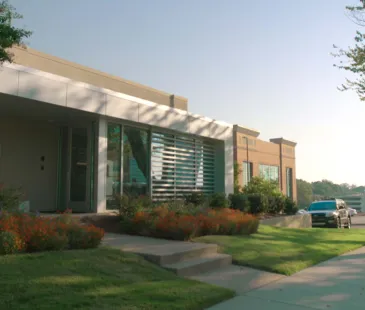
About Kavali Plastic Surgery
Metamorphosis for your mind, body and soul.
What we provide is plastic surgery, cosmetic procedures, reconstructive procedures, and skin care. But what people really get from us and from our products is HOPE.
Request a Consultation